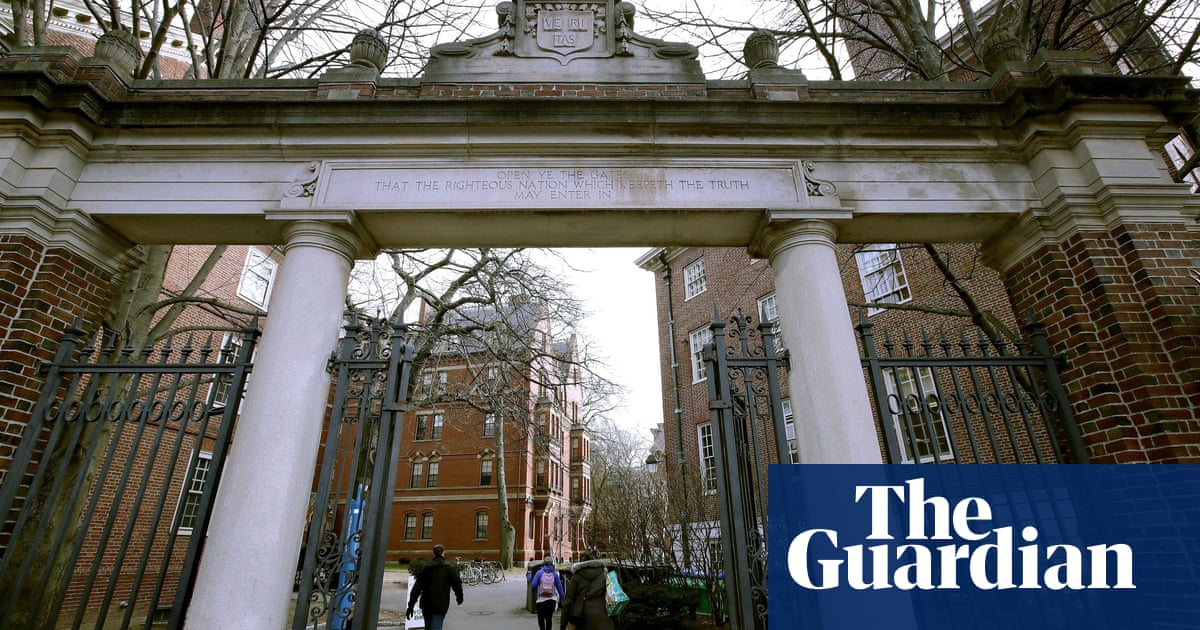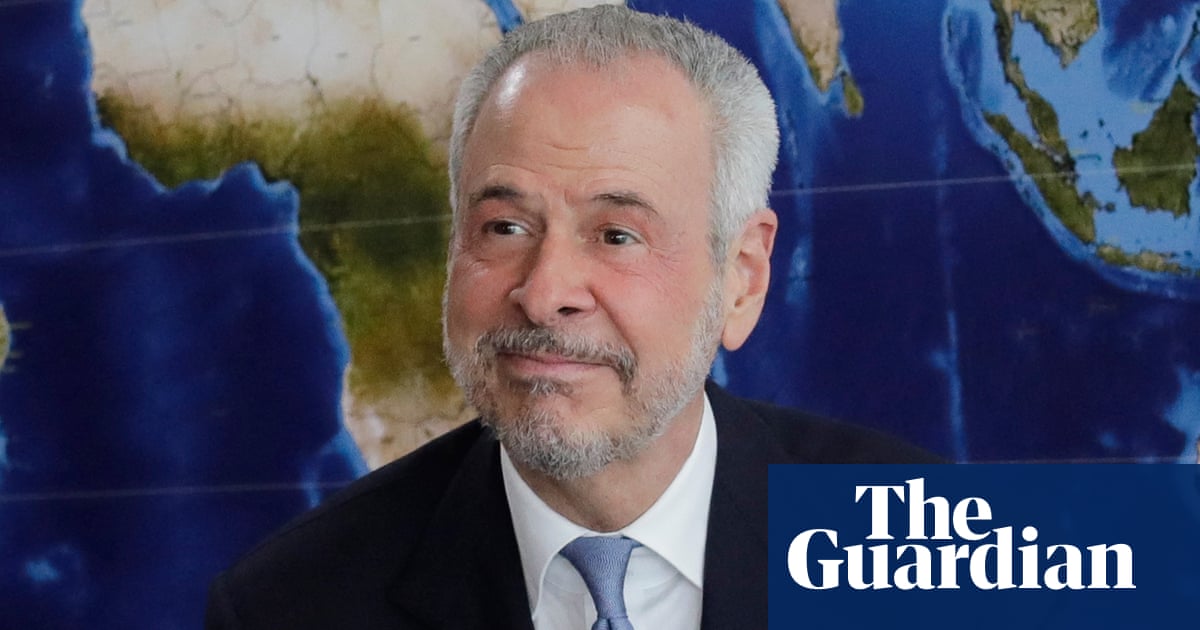Donald Trump plans to tap a loyalist whose civil rights résumé largely consists of culture-war battles over campus free-speech issues and attacks on diversity initiatives to helm the justice department’s civil rights division. The move puts at risk hundreds of active investigations, from police misconduct to employment and housing discrimination to abuses in jails and prisons.
Trump intends to replace the assistant attorney general, Kristen Clarke, the current chief of the civil rights division and the first Black woman to lead the division, with Harmeet Dhillon, a Maga darling and fixture in rightwing media.
The history of the justice department’s civil rights division is the product of lynchings, aged patients dying of neglect, and police officers murdering people in the street. It is the legacy of Matthew Shepard and Breonna Taylor and Emmett Till.
When local authorities would not investigate civil rights violations – or were violating rights themselves – communities have had to rely on federal investigators to fill the gap in justice. The question these communities will ask over the next four years is who the civil rights division under Donald Trump will protect.
“I talk to people who are depressed because the outcome of the election, and I have to remind them, this is not our first lynching,” said the Rev Gerald Durley, a contemporary of Martin Luther King and pastor emeritus of Pastor of Providence Missionary Baptist church in Atlanta. “During the early days, when real lynches were occurring, we took the body down, we buried it, we kept on moving, and we kept on marching.”
Since the start of the Biden administration, the civil rights division has charged more than 120 people in more than 110 cases under hate-crimes laws, from the prosecution of three men who killed Ahmaud Arbery, a Black jogger in Brunswick, Georgia, to the murderer of 10 Black people in a Buffalo supermarket, to the white nationalist who killed 23 people he perceived to be Hispanic immigrants at a Walmart in El Paso last year.
When Clarke testified before the Republican-controlled House judiciary subcommittee on the constitution and limited government last year, conservative lawmakers pressed her on perceived biases in the department’s investigations.
The Republican congressman Chip Roy lambasted Clarke for having only prosecuted a couple of cases of pro-choice protesters violating the Face Act, which protects access to abortion clinics and to pregnancy resource centers.
“Even under your watch, it’s at least 35 to one or two,” he said. “That is not even-handed. It’s far from even-handed.”
Left unsaid: crimes against abortion clinics and staff increased dramatically after the Dobbs decision stripped federal protection for abortion rights in 2022.
The civil rights division is the primary federal enforcer for over a dozen provisions of federal law including the Civil Rights Act, the Americans with Disabilities Act, the Fair Housing Act, the Equal Credit Opportunity Act, the Uniformed Services Civil Relief Act, the Hate Crimes Prevention Act.
The division also enforces anti-discrimination laws for immigrants under the Immigration and Nationalization Act, eliciting settlements with companies – usually with fines for small companies of under $100,000. But the division has larger targets. Apple, Meta and Facebook each signed multimillion-dollar settlements over visa discrimination under the Biden administration.
The civil rights division has been investigating Elon Musk’s aerospace and satellite firm SpaceX since 2020, alleging that SpaceX erroneously relied on export control laws to restrict its recruiting and hiring to US citizens and lawful permanent residents.
Disability rights have been core to the department over the last four years, particularly around how state hospitals treat mental health patients. The division opened an investigation into Michigan’s state hospitals last month. Hospital care tends to be less politicized and perhaps less susceptible to partisan changes in administration, said Simon Zagata, director of the community and institutional rights team of Disability Rights Michigan.
“Our expectations are that [the investigation] will continue as it has started,” he said. “It is harder to stop these things once they get started, and even though there will, of course, be changes in the Department of Justice, changes don’t happen immediately and they don’t happen all the way down the line.”
The department’s highest-profile civil rights investigations involve police misconduct. Since April 2021, the civil rights division has opened 11 investigations of law enforcement agencies. It has announced preliminary findings in five of those investigations, in Phoenix; Worcester, Massachusetts; Minneapolis; Mount Vernon, New York; and Memphis, Tennessee, the latter stemming from the killing of Tyre Nichols by Memphis police officers.

“The department is working with these police departments, local officials, and the communities to identify and implement remedies for addressing these violations – including consent decrees – in a manner that is fair, transparent, and effective,” said Clarke in congressional testimony in December 2023.
Ongoing investigations of police agencies include those of New York police department’s special victims division, Oklahoma city police department, Trenton police department and the Louisiana state police.
The murder case of Sonya Massey, killed by a sheriff’s deputy in Illinois earlier this year, prompted investigation by the civil rights division. So did the “goon squad” case in the Rankin county sheriff’s department in Mississippi, where deputies systematically brutalized Black residents and then tried to cover up their crimes.
It is unclear whether the Trump administration will allow these investigations to continue. Trump has vowed to “give our police their power back, and we’re going to give them immunity from prosecution, so they’re not prosecuted for doing their job”. But when pressed on the Massey case, Trump relented.
“I mean it depends. It depends on what happens,” Trump told Semafor. “I’m talking about people that are, much different cases than that … In this particular case, I saw something that didn’t look good to me. I didn’t like it. I didn’t like it at all.”
While Trump publicly repudiated the policy initiatives of Project 2025 during the campaign, he has announced his intent to appoint many of its authors to positions of authority in the incoming administration. Project 2025 proposes a fundamental inversion of the mission of the civil rights division.
“Even though numerous federal laws prohibit discrimination based on notable immutable characteristics such as race and sex, the Biden administration – through the DoJ’s civil rights division and other federal entities – has enshrined affirmative discrimination in all aspects of its operations under the guise of ‘equity’,” the document states.
“Federal agencies and their components have established so-called diversity, equity, and inclusion (DEI) offices that have become the vehicles for this unlawful discrimination, and all departments and agencies have created ‘equity’ plans to carry out these invidious schemes.”
Project 2025 advocates for the Trump administration to pack the division with political appointees and to eliminate the use of “disparate impact” in civil rights enforcement, which undercuts measurements of discrimination. It also proposes that the department “should spend its first year using the full force of federal prosecutorial resources to investigate and prosecute all state and local governments, institutions of higher education, corporations, and any other private employers who are engaged in discrimination in violation of constitutional and legal requirements”.
“Discrimination” in this context refers to government agencies pursuing diversity initiatives that ensure minorities have proportional representation in hiring and promotions.
The conservative playbook also proposes taking investigatory responsibility for voting rights cases away from the civil rights division and giving it to the criminal division, with a mandate to prosecute Pennsylvania elections officials who distributed absentee ballot applications in 2020.
And it calls for “aggressive enforcement of the immigration laws within the immigrant and employee rights section of the civil rights division to ensure that no American citizen is discriminated against in the employment context in favor of a temporary or foreign worker”.
Civil rights leaders worry that under Trump, the work traditionally done by the division may fall by the wayside. In Georgia, the civil rights division has issued scathing reports about conditions in both the state prisons and the Fulton county jail in Atlanta.
“I think the DoJ reports make it clear that there need to be some systemic changes,” said Mawuli Davis, a prominent civil rights attorney in Atlanta. “It requires a level of intentionality, of follow-up, and don’t know that this will be a focus.”

 1 month ago
26
1 month ago
26













































